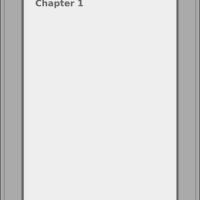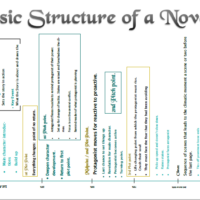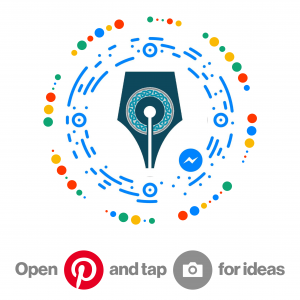by Anna Johnstone | Sep 25, 2017 | Advice, Service
A lot is said about how to find the right editor for you but today’s post is about being a good client. I had not intended for this to be this week’s post but given the circumstances, I thought this needed to be said.
Most of us know by now that the business relationship runs both ways. It should be one of mutual benefit and courtesy. Most of you know you need to be polite to editors when introducing your work, and they know to be tactful and treat your work with respect and discretion. Most of you know that most editors are very busy and cannot simply drop everything to make your work an immediate priority, but we still try to be polite when dealing with even the most ‘urgent’ projects. However, there are times when we meet those who don’t know these things, and today was one of them. I would like to draw from my own experience for an example of how not to introduce yourself to an editor. I will not name names. Doing so would be unprofessional and serve no purpose other than to exacerbate the problem, However, I do not feel that ignoring this experience will do any good either. For the moment there are two things authors need to remember;
- Good customer service does not mean being a doormat and accepting poor treatment just to get the client. Good customer service requires effort on behalf of the client too.
- Editors talk… A lot… About everything…
A few days ago I received an unsolicited ‘friend’ request from a member of one of the many writer’s groups I am a part of on Facebook. Recognising the name and thinking it’s about editing as it came on that profile, I accepted it and sent an invitation to my editor’s page to let them know it is there. This is not the same as a ‘request’ and people are free to decline it. I had thought nothing of it since given that my service has been closed for the last few days following the sudden death of my father. It strikes me that if he had really read my page he would have seen my pinned post. I digress…
Today I have experienced possibly the worst example of entitled behaviour since I started fourteen months ago. I arrived at my page to check my messages to find a personal message (not to the page, but to me personally) to say that they had liked my page and would I now like theirs “Only if deserved”. I didn’t get a chance to tell them that I was rather busy and would take a look when I had time because when I gently pointed out that my service page does not engage in like-swapping he began hounding me to just follow the link to his page and hit ‘like’ (even the most technologically naive of us should know not to ‘just follow’ any link.) just because he had liked mine. He had not used my service or put work my way so I am surprised he did. When I told him his behaviour to me was aggressive, he threw a tantrum that would have embarrassed Super Nanny; accusing me of spamming him, even though I explained that the invitation was only that; an invitation, and telling me not to buy his book. At no point did I say I would not like his Facebook page, but I was not given the opportunity to say that I would take a look when I had time because I was blocked before I could and simply because I would not drop everything and give him exactly what he wanted when he wanted it. He wanted me to like his page as an endorsement to his work without ever having read it.
In a way, I am sort of glad that this client has exposed his nature as a difficult client before I had to deal with him. This person is not the type of client this service is looking to engage with. Nor will it be. Ever. What did he do wrong, you ask? Firstly he assumed that he had an automatic right to my time and attention and that I should be grateful for his and jump to his will. It would take me time to go to his page and read his work. Time that I just don’t have this week. Yes, his primary introduction was fairly polite but his tone and demeanour changed to one of affronted aggression the moment things did not begin to happen exactly as he would like. That was his second mistake.
Remember, that editors are more than merely a living spell checker. We have lives and we have self-respect and we talk to each other. We know who the merely difficult clients are. We also know who the ones to avoid are. This is the beauty of being a freelancer. We have the privilege of choosing who we deal with. Imagine he had behaved that way to waiting for staff or someone at a call centre who did not have that option? It is not okay to treat anybody that way and if the cost of not putting up with it means one less rude or difficult client then that price is worth it.
![How to be a good client.]()
by | Mar 26, 2017 | Advice, Blog
We’ve all heard of that one person who demands more from a service than is strictly reasonable, haven’t we? They want the dry cleaner to somehow get the turmeric stains off of the front of their favourite top and then scream blue murder if they – unsurprisingly – fail. They expect freebies, discounts, and are rude to waiters. They delay paying a bill for something because they’d rather go down the pub. They’d even go so far as to make a spurious complaint on the off-chance that they could save a few quid, never mind the effect that complaint could have on another person. Okay. These are extreme examples. The point is that while we expect to get our money’s worth out of a service, a healthy business relationship is a two-way street. In light of this, here are a few things to bear in mind in order to not be that customer.

Always prepare a brief.
We love these. These tell us exactly what is expected of us and enable us to realistically price and plan your project. A brief to an editor should include the following information.
- The title of the work and the author’s name and contact details.
- How many files are involved and what they include.
- The nature of the work. Is it a novel, an essay for assessment, an article for a magazine etc.? This helps us assess if we have the necessary skills to complete your project. Some editors specialise in fiction in a particular genre so sending them your dissertation on the history of the paperclip (gripping material) would not do you a lot of good.
- The deadline and when you expect the project to begin. This editor might not be available at the time you need them. If you ask, they might be able to point you in the direction of someone who is not only available but shares your obsession with stationery.
- The length of the document. This will affect the pricing of the document. Your editor needs to factor their time into the equation.
- Is it a blind edit? If the document has undergone editing prior to your project, you may want to send the original as well as other documents so that this editor can see what changes have already been made. You don’t want them undoing the work of another. It’s a waste of their time and yours.
- The style guide or house style you are working from. Send them a copy so they can familiarise themselves before starting work.
- The level of intervention expected. Don’t be the client that asks for a copy edit but expects the whole thing to be rewritten. This part of the brief allows the editor to clarify which parts are part of the normal service and which bits are extras. You will be expected to either sacrifice extras or pay for them. Similarly, you might only want to check for spelling, grammar and typos.
Your editor has many talents, but mind reading is not one of them. The brief above is the bare minimum of the information you should expect to provide. Being clear from the beginning will help avoid any nasty surprises later on. It will save you both time,

The price may be negotiable but an agreement is an agreement.
Many editors now will issue a service agreement relating to the final negotiated terms of payment. These include the services expected, sometimes in great detail, so be sure to read them thoroughly before sign anything. It also includes the rate that you have agreed to. This agreement stage protects you as much as the editor but while it constitutes a promise to carry out x, y, z, it also constitutes a promise from you to treat the service provider fairly.
A service agreement will, at the very least, include the rate that you have agreed to pay, the services to be carried out, deadlines, and the dates by which it is to be paid. You might have arranged an instalment plan. If so, you have a responsibility to make these scheduled payments at the agreed time. It will likely list any penalties and consequences for not meeting your side, as well as what they are prepared to do in the event that they fail to fulfil their end. If you do not feel these are fair then you should not sign the agreement. Attempt to negociate terms but be fair. You cannot expect them to remove anything that protects them.
Asking for extras mid-project is another danger area. For instance, if you went to a local store to collect and pay for your paperclip order but, on the way, decided you wanted bulldog clips instead, you would expect to pay the bulldog clip price, would you not? The rule is the same for services. If you want extra, this may often mean amending and signing the service agreement to reflect the changes. You can be a good client by
- Asking if it is feasible to extend the length of the project. Your editor may not have the time. Some of us work on more than one project at once while others prefer to concentrate on one project at a time. We all work differently so you should double check that we are available before giving us extra work.
- Ask how much extra it will cost. If you went to a local store to collect and pay for your paperclip order but, on the way, decided you wanted bulldog clips instead, you would expect to pay the bulldog clip price, wouldn’t you? The same applies to services. Similarly, if you found that you had left something out of your brief, and it hasn’t been done, you would not complain that the editor did not fulfil your brief.
- Paying as promised and on time.

Trust
This works on both sides. You need to trust that your editor knows what they are doing and that they can deliver the service to the promised standard. They need to trust that you will uphold your end of the bargain. No matter who much you like an editor, if they feel that you have acted unfairly, they may decide that the stress of working with you is not worth the price.
You chose your editor because they possess a skill set that you do not. For this reason, alone you should listen to them. Give them the freedom to keep their promises to you. Editing is a collaborative process which takes both time and care. If they come to you with a query, answer it promptly and politely. It is true that anybody can call themselves an editor, and unfortunately there are cowboys and charlatans in every walk of life, but the good ones know their craft. Treasure them. Many are published authors in their own right so have experience from both sides of the relationship and empathise with your anxiety. They also take pride in their work and want to help you make the best of your work. It’s not just about making money.

Professional pride
Like other services, our living relies upon our reputations. There is a fine balance between personal opinion and the decisions formed by experience and skill. If your editor feels they are unable to point out flaws in your writing, due to the reaction it might induce, they will not be working to your best advantage. You want your editor to pick up problems and bad habits. It’s how you will learn to be a better writer. So while an editor might exceed their remit in some cases, remember they are doing the job to the level that they would eexpectto receive it.
Back to the dissertation analogy here. Say you handed them your brief to check spelling and punctuation only, but the editor noticed that your use of paperclip vs. paper-clip was inconsistent, but because they had not raised the issue or highlighted them, you were marked down by your tutor. And what if the reason they had not mentioned anything is becasue you had refused to accept input over the wording. This would not be what the editor would regard as a successful outcome even if they had fulfilled the terms of the brief to the lettter. This can be avoided by
- Being flexible with your brief. If you have left something off and the editor raises the issue, it is usually because some part of your writing has raised a concern and they could not, in good conscience return the editied work without raisning the issue. This is a good thing.
- Ensuring your brief includes everything you want from the service. It is also way the pre-project discussions are so important.

Reasonable deadlines
It doesn’t matter how fast someone reads...Scratch that. It matters a lot.
Proofreading, in particular, means slowing… right… down… and taking in every word carefully. It means looking for extra tall lettters hidden with others, because the human eye is a lazy beastie and will assume that what it sees is what is really there. Reading a two hundred page novel might be possible in two or three days, but editing is not the same as reading for pleasure. Often, it means checking that all captions match images and bibliography formats are correct, looking for double spacing, transpositions, or repeated text. In other words, it means doing what the spell-checker can’t do; apply common sense. This is also why you shouldn’t just forgo editors and rely on the spell check. The spell check can’t find plot holes. It is vital that you apply common sense and allow adequate time for the work to be carried out. A betaread of a 85k word novel could easily take two weeks due to the level of care needed in the reading.

Leave fair and honest feedback; spread the word
If you are happy with the service you have recieved then say so. Frequently. Recommend them to colleagues and friends. Way back before the internet, businesses lived and died on their reputations. Today, this is even mor the case. The rise of social media means that the lack of pressence and reviews is almost as bad as negative reviews. It tells future clients that this person cannot deliver what they promise. It’s like the boss who ‘loves’ you right up until you leave, then refuses to give you a reference. Reviews are the references of the information age. Use them. Tell the world you love your editor and why.
The other thing not to do is to leave vaugue feedback, or comments which contradict your repsonses to the editor. The feedback is not the place to bring up new problems. It is the place to tell people how well your editor did their job including dealing with a misunderstanding over style. Your editor relies on feedback to not only gauge reach and reception, but to iprove their service. It is important they these be honest. A dishonest negative review can do someone real harm, they are not funny or ethical. If your editor has failed to meet a deadline or fulfil their side of the agreement, AND THEN failed to deal with the situation adequately, then by all means take to their facebook page and lambast away. At least initially, you should deal with greivances calmly and in private.



















